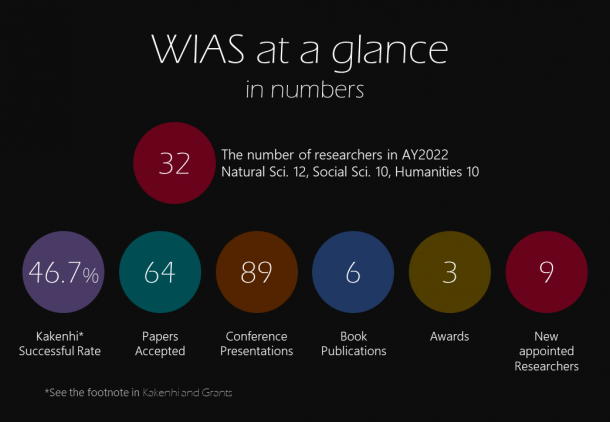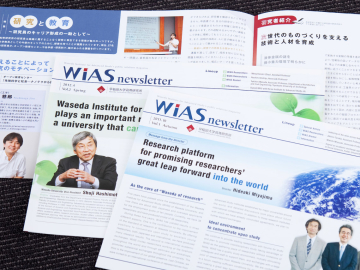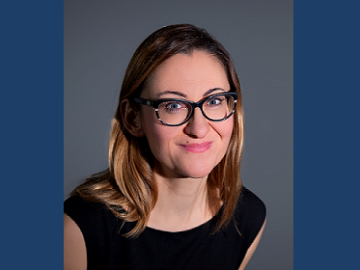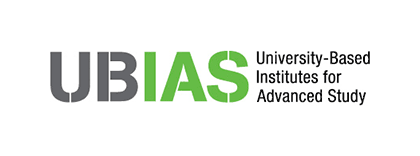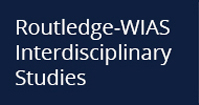Researchers
We welcomed 11 researchers in AY2023.
ABE, Tatsuya
Since the consequences of environmental policies such as carbon pricing are highly dependent on the carbon abatement potential of firms, it is important to understand it in advance. The objective of my research is to estimate the abatement potential of carbon for firms based on a production function that fully accounts for heterogeneity in production technology and energy efficiency across firms. Based on the empirical result, I will examine the effective design of environmental policies from an economic perspective.
HOSHINA, Naosuke
Our feelings, thoughts, and actions are governed by “brain networks,” which are composed of numerous intricately and elaborately connected neurons. However, the specific grouping of neurons that establish brain networks and how they carry out functions are still unknown. By focusing on the genetic characteristics of individual neurons, I will unravel the patterns of neural wiring in the brain networks and explore the mysteries of the brain.
HUNG, Shao-Min
My research focuses on a variety of implicit, unconscious, and subliminal processes. Using psychophysics and fMRI, I am to probe the similarity and dissimilarity between conscious and unconscious processes. Currently, one of my main research directions is to understand the interaction between attention and unconscious processes.
KARAISL, Antonia
The practice of dedicating sangaku (算額), votive tablets presenting geometric problems in word and image, flourished in Japan throughout the Edo period. Close to a thousand sangaku survive in shrines and temples to this day. Yet even though they showcase a unique geometrical discourse developed apart from Western mathematics, the case of sangaku is almost entirely unknown outside the country. This research project aims to put this tradition on the radar of international scholarship: by creating an open source bilingual repository for all surviving sangaku; and by forging research networks nationally and internationally to study the practice in detail.
LEE, Juhee
It is no exaggeration to say that the discourse on tenkō, or socialists’ ideological conversion, of 1930s’ Japan was largely shaped from the late 1940s through the 1950s. It was in the same period when the Cold War system was being constructed based on the anti-communist ideology. Bearing this in mind, my study aims to analyze how the social experience of prewar and wartime tenkō was represented in postwar literary texts in relation to the tenkō discourses of the period.
LIU, Ling
To foster productive political engagement in contemporary democracies, it is vital to understand how citizens respond to information that challenges their beliefs. Yet relevant research focuses overwhelmingly on the U.S., where public trust in media is uniquely low. INFOTRUST hypothesizes that a major comparative study of low, medium, and high media-trust nations will upend settled assumptions and promote a more robust theoretical framework for understanding public discourse in the Internet age.
OIKAWA, Masato
My research focus is on empirical evaluations of social security and education policies. Advanced countries including Japan are facing increasingly severe challenges of population aging and the sustainability of social security systems. In order to overcome this crisis with using limited financial resources efficiently, it is important to conduct precise quantitative evaluations of past policies and establish scientific evidence. As part of this effort to create scientific evidence, I am evaluating policies related to promoting health for the middle-aged population and opportunities for children to learn.
OMINATO, Yuya
Recent developments in film deposition technology have made it possible to create various atomic layer materials (two-dimensional materials with a film thickness of one to several atoms). Atomic layer materials have many unique properties not found in conventional materials and are the subject of intensive research. The physical properties of atomic layer materials change qualitatively depending on the number of layers and the stacking of different atomic layer materials. Therefore, many new phenomena and functionalities are expected to be discovered by combining various atomic layer materials, which is of great interest from the two viewpoints of fundamental science and device applications. Our study aims to theoretically predict the physical phenomena that serve as a mechanism to control the rotational motion (spin and orbital angular momentum) of electrons in atomic layer materials and to propose a principle of operation for next-generation devices.
SATO, Yuko
The third wave of autocratization has become a global challenge. I address this growing phenomenon and investigate the process of democratic erosion on two fronts. First, I examine how conflicts affect political actors’ preferences and their polarization. Second, I analyze how autocratic leaders’ political strategies ignite violence and accelerate the process of autocratization in democratic settings. Through these research themes, my research contributes to clarifying the mechanisms under which democracy is destabilized or stabilized.
https://www.waseda.jp/inst/wias/other-en/2023/07/18/13675/
SHIMAKAWA, Rhythm
How did the universe evolve, and how did the Milky Way and its surrounding supercluster form? To answer these questions, we aim to draw the large-scale structure of the distant universe and statistically clarify the formation and evolutionary history of associated galaxies by using big data covering tens of thousands to tens of billions of objects and mathematical statistical analysis.
SUDO, Ryushin
I have been clarifying the history of argumentation theory in medieval India, colored by rhetoric and logic, through my philological and philosophical studies of the Old Naiyāyika and Buddhist Sanskrit literature.
However, they contain few descriptions of debaters and the process of argumentation, making it a challenge to elucidate the actual components and operational methods of argumentation.
This study aims to clarify the methodology of argumentation in medieval India through textual analysis of the literature of New Naiyāyika, Jain, Dharma, etc., which refers to the qualities and actions of debaters and the argumentation structure.
Furthermore, through a comparative study of argumentation theories from different periods, I would like to examine the feasibility of philosophical argumentation.
Introduction of our activities
1. Research Seminar for Transdisciplinary Perspectives Toward Environmental Sustainability
In order to achieve “Promotion of academic research,” WIAS has developed unique research projects organized by full-time professors of Waseda University and WIAS researchers. Ken-Ichi Akao, Director of WIAS and a project member of Research Seminar for Transdisciplinary Perspectives Toward Environmental Sustainability, introduce their recent activities.
The issue of environmental sustainability with a focus on climate change is one of the most significant challenges of this century directly impacting the survival of humanity. This multifaceted problem requires interdisciplinary approaches from the social sciences, humanities, natural sciences, and engineering for both mitigation (reducing and removing greenhouse gas emissions) and adaptation (responding to the damages). The WIAS research project entitled Research for Transdisciplinary Perspectives Toward Environmental Sustainability aims to advance state-of-the-art research from various specialized fields and foster collaboration among researchers with different areas of expertise in an effort to promote interdisciplinary exchange.
In the Workshop on Climate and Environmental Economics held on April 22, 2023, nine cutting-edge research outcomes were presented encompassing both theoretical and empirical analyses related to climate change. This summary aims to convey the importance and scientific interest of some of the reported papers.
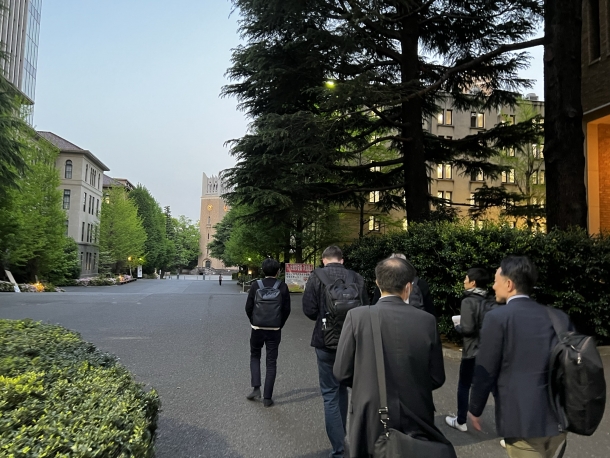
One fundamental question in addressing climate change concerns how to consider the well-being of future generations, given the far-reaching impacts of this issue lasting over a millennium, and how to incorporate it into current climate change policies. Moreover, there is the issue of whether the very existence of future generations will be affected by our choices. Taking these aspects into account, the workshop discussed the establishment of criteria for assessing the desirability of climate change policies.
Apart from these fundamental issues, climate change requires urgent attention, and identifying desirable policies is of immediate concern. Therefore, some research has temporarily set aside fundamental questions to utilize so-called integrated assessment models incorporating climate systems into traditional economic models. However, such integrated assessment models face challenges in identifying the factors behind optimal policies as they become more complex. In response, a new research field emerged to construct simplified and analytically solvable, integrated assessment models, aiming to derive the economic implications of optimal policies. Some of these research outcomes were presented during the workshop.
The optimal policy for climate change is represented by a carbon price (known as the social cost of carbon). Climate change is a long-term problem shrouded in significant uncertainty, impacting the social cost of carbon through our risk aversion and ambiguity aversion towards it. However, existing integrated assessment models have only partially incorporated uncertainty. If the influence of uncertainty on the social cost of carbon is substantial, the results obtained from integrated assessment models may require adjustments. With this in mind, research evaluating the impact of uncertainty on the social cost of carbon was presented.
In more specific research areas, a research field evaluates whether our society is moving towards sustainability or degradation based on real data. The evaluation is conducted using indicators such as the United Nations’ inclusive wealth assessment (indicating an increase in weak sustainability) or its derivative representation, genuine investment, or inclusive investment. The workshop discussed them with a focus on carbon emissions.
Many economic models assume convexity for analytical simplicity. However, numerous natural and socio-economic phenomena seem to result from non-convexity. By incorporating non-convexity into macroeconomic models, it is optimal for society to follow unsustainable paths under certain conditions, assuming rational behavior. The decision on whether to choose the sustainable or the unsustainable path depends on various parameters, particularly the level of capital stock (in a broad sense, including natural resources and environmental assets) with non-convex properties. It indicates the existence of the threshold for this stock. It might be the rising 2°C in the context of climate change. The workshop discussed the characterization of the threshold.
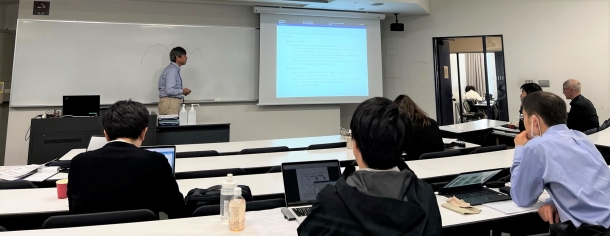
In addition to the theoretical research, empirical studies were presented in the workshop. These included advanced econometric analyses of the impact of climate change on agriculture and disaster risk evaluation through changes in land prices, empirical analysis of the effect of the European carbon border adjustment measures on the Asian and the Pacific region, and research on evaluation methodologies for adaptation projects in developing countries considering uncertainty.
All the presented research is at the forefront of the field. Through this workshop, researchers with various specialties had the opportunity to share challenges and approaches in climate change economics and to exchange information and ideas.
WIAS at a glance
Achievements of WIAS and its researchers in AY 2022 as shown in numbers below (Click the following picture to see whole slides).
Information
WIAS invites outstanding overseas researchers who are active internationally, and contributes to the energizing of research activities at Waseda University through academic exchanges and seminars between our researchers and the invitees. Click here for more information.
Visiting Researchers
- April 1 – May 1, 2023
KOROSTELINA, Karina
Professor, George Mason University (USA)
- April 1 – May 1, 2023
MORALES AZNAR, José
Professor, Ramon Llull University (Spain)
- April 16 – May 17, 2023
LE GALÈS, Patrick
Professor, SCIENCES PO Paris (France)
- April 24 – May 24, 2023
ONDERCO, Michal
Professor, Erasmus University Rotterdam (Netherlands)
- May 1 – May 31, 2023
HALOG, Anthony
Lecturer, Head of Research Group, The University of Queensland (Australia)
- May 7 – June 6, 2023
LEDER, Helmut
Full Professor, University of Vienna; Head of the Interdisciplinary Cognitive Science Research Hub (Austria)
- June 13 – July 13, 2023
GÓMEZ- RÚA, María
Associate professor, University of Vigo (Spain)
- June 21 – July 21, 2023
PULFORD, Ed
Lecturer, University of Manchester (UK)
- June 23 – July 23, 2023
HO, Tu Dac
Associate Professor, The Arctic University of Norway (Norway)
- July 1 – July 31, 2023
MOLIS, Elena
Associate Professor, University of Granada (Spain)
- July 5 – August 4, 2023
WIWATTANAKANTANG, Yupana
Associate Professor, National Univesrity of Singapore (Singapore)
Visiting Scholar
- March 30, 2023 – May 28, 2023
XIE, Yufei
Lecturer, College of Liberal Arts, Shanghai University (China)
- May 22, 2023 – July 20, 2023
HATAYAMA, Mami
Lecturer, School of the Art Institute of Chicago (USA)
- June 19, 2023 – August 17, 2023
KHAN, Shamshad Ahmad
Assistant Professor, Birla Institute of Technology and Sciences (India)
- July 4, 2023 – August 10, 2023
MARTINEAU, Charles
Assistant Professor of Finance, University of Toronto (Canada)
We welcome your comments and suggestions. Please contact us at the coordinates below.
Waseda Institute for Advanced Study (WIAS)
1st floor, Nishi-Waseda Bldg.
1-21-1 Nishi Waseda, Shinjuku-ku, Tokyo 169-0051, JAPAN
URL:https://www.waseda.jp/inst/wias/en/
TEL:03-5286-2460
FAX:03-5286-2470
E-mail:[email protected]

